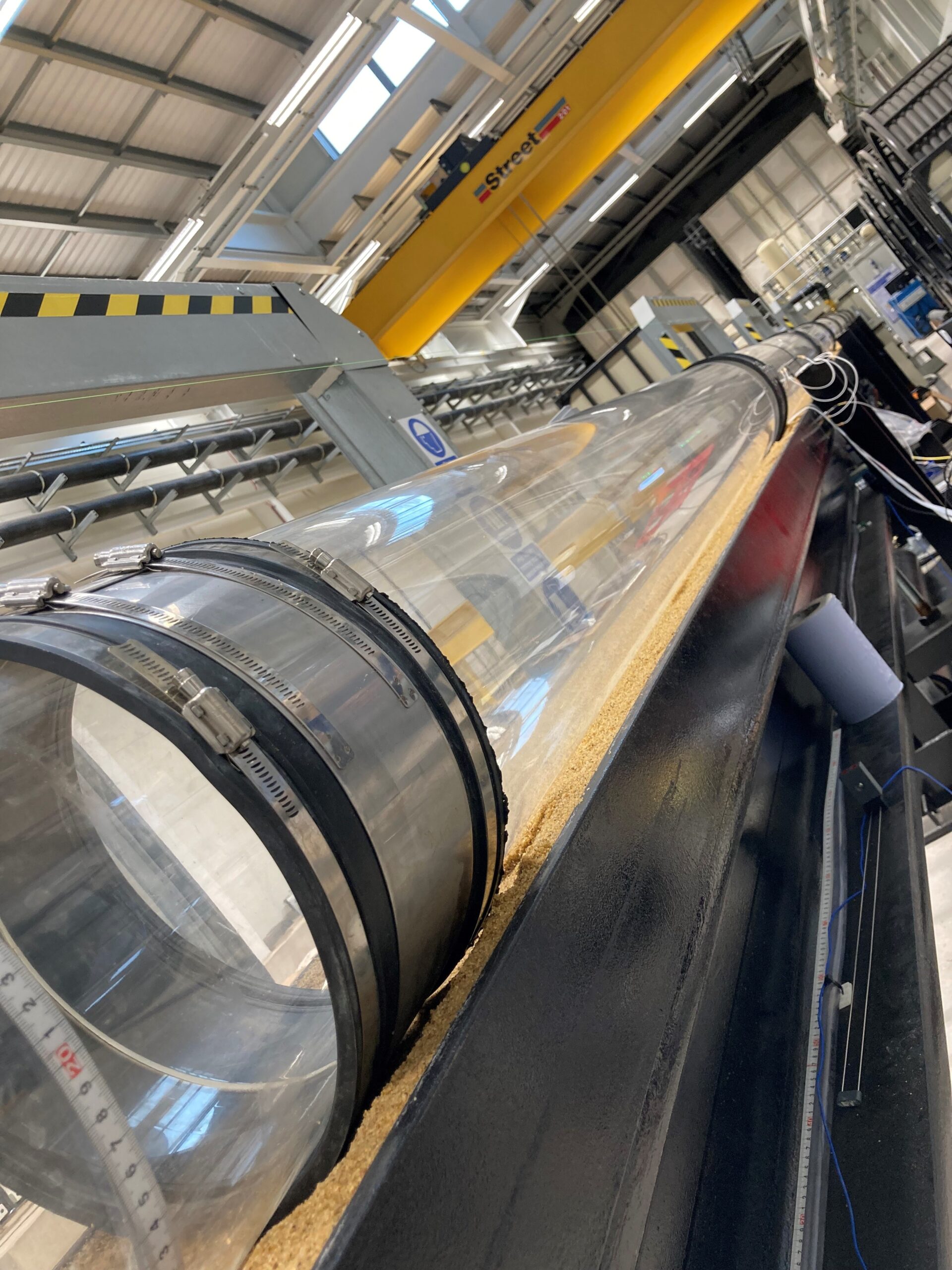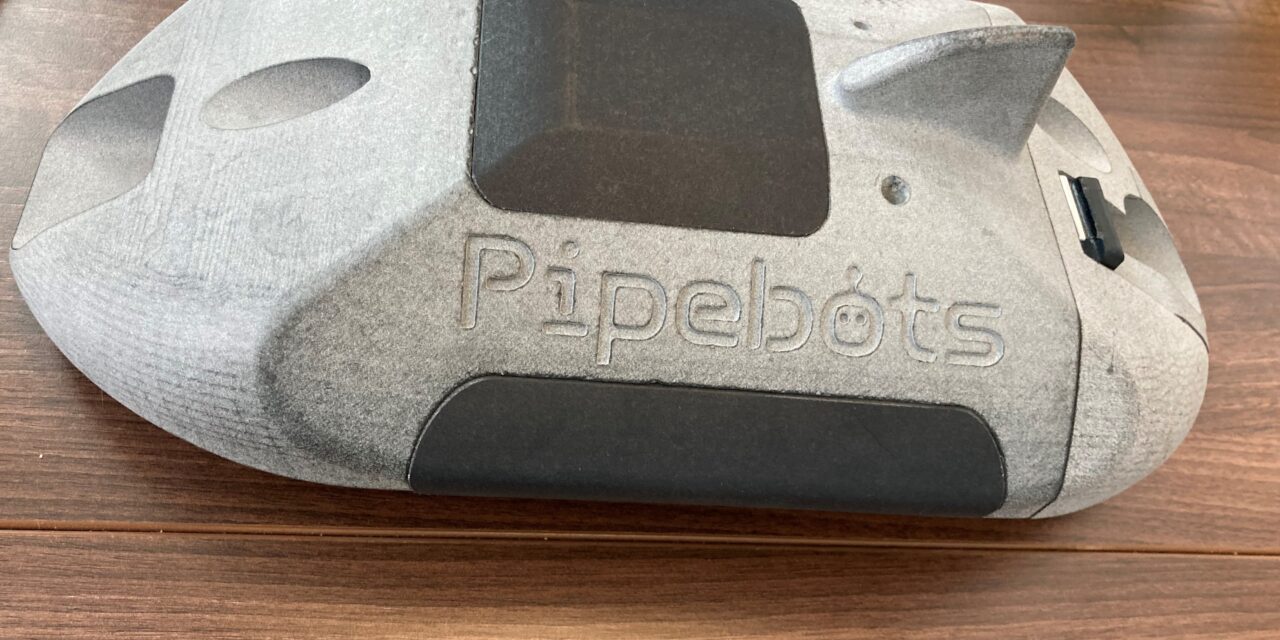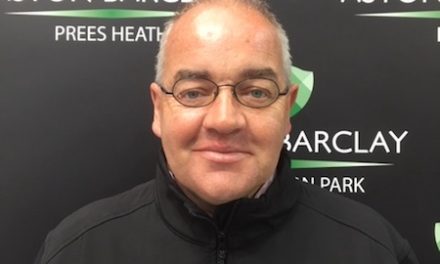Image: Space model of the Pipebots for Rising Mains
Like the water system, transport systems are reliant on dependable and streamlined infrastructure that is subject to external factors including climate and demand. With swiftly changing environmental conditions and increasing levels of use from growing populations, both systems now need to respond to challenges that couldn’t have been predicted by their architects.
Water companies provide drinking water and sewage services to over 50 million households in England and Wales, with a sewage network that could wrap around the world 13 times. Similarly, some transport networks in the UK carry up to five million passengers a day. Both sectors are reliant on large, well-established and long-lived infrastructure – whether pipelines, railways or roads- operating in these changing environments, and both sectors must prioritise futureproofing in order to continue to provide essential services.
In January, English and Welsh water regulator Ofwat launched the Water Discovery Challenge, a new £4m competition for innovators outside of the water sector with bold ideas that can help solve some of its biggest challenges. In particular, Ofwat is calling on innovators working in transport and urban planning to apply their ingenuity and skills to deliver breakthrough solutions that can be used by the water sector. We need to respond and adapt to climate change, working towards clear common goals and ambitions.
The Water Discovery Challenge is the latest from Ofwat’s £200 million Innovation Fund, which seeks to generate new ideas to tackle issues including preventing pollution, improving water efficiency, boosting flood and drought resilience, prioritising sustainable practices, managing leaks and supporting vulnerable customers. The new competition does not require entrants to partner with a water company.

ICAIR test facility at University of Sheffield
How the transport industry can revolutionise the water sector
There is immense potential for bold ideas from the transport sector to revolutionise current practice in the water sector. This could range from introducing new methods of transporting materials, to implementing structures that reduce surface runoff to prevent transport network delays. Equally, the development and adoption of new design materials could improve sustainability across pipe networks and other infrastructure. Finally intelligent use of data could benefit customers and improve maintenance practices across both forms of infrastructure.
Ofwat’s Innovation Fund has rewarded innovations connected to the transport sector in previous competitions.
One example is Welsh Water’s Hyvalue project, which is investigating creating chemically-manufactured versions of hydrogen from gas produced by sewage treatment. It’s hoped that the hydrogen created will be used to power Cardiff’s fleet of 300 public buses, not only reducing the associated carbon emissions from diesel exhaust, but also reducing nitrous oxide emissions and particulate emissions.
Other examples include the Designer Liner project, which aims to line older pipes from the inside to prevent leaks and increase the lifespan of mains pipes. Repairing damaged pipes can cause extensive disruption to customers through roadworks, and new, high-tech solutions require testing and sign-off from multiple authorities. This project is exploring the global pipe-lining market to identify if there are better products that could be used in the UK, and if not, the ideal design specification for the most leak-proof lining. This should lead to cheaper, more environmentally friendly pipe-lining.
Finally, multiple winning innovations are working on ground-breaking solutions to address leakage – an issue that can cause major disruption across transport networks. These include a National Leakage Research & Test Centre – a realistic model water network featuring deliberately introduced leaks that can be monitored via sensors, allowing innovators to test new solutions, and Pipebots for Rising Mains – tiny robots that can monitor and prevent leaks by “crawling” through pipes. These interventions could be scaled-up and paired with mapping crucial transport pinch-points, to predict and prevent flooding that may affect travel for consumers.
How to enter the Water Discovery Challenge
Up to 20 teams of the most promising innovators will be awarded up to £50,000 to develop their ideas, with expert support and mentoring from water companies. Up to 10 will go on to win up to £450,000 to turn ideas into pilots.
To deliver the competition, Ofwat is working with innovation prize experts Challenge Works, alongside global engineering, sustainability and water sector experts Arup, and Isle Utilities. In addition to financial incentives, successful teams will benefit from expert mentoring and capacity-building support, including access to insights and mentoring from water companies and support for scaling solutions for the extensive water network in England and Wales.
The Water Discovery Challenge closes on 5 April 2023. To find out more and enter, go to: waterinnovation.challenges.org










